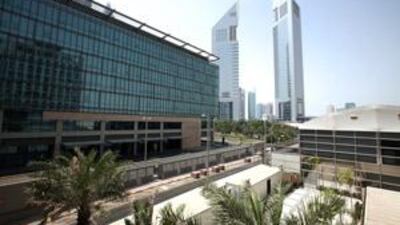Dubai's financial services watchdog is expected to liberalise the rules governing its funds industry to attract more of the investment vehicles to the emirate. A 10-member panel reviewing the fund regime of the Dubai International Financial Centre (DIFC) will be finishing "within a couple of days", according to Bryan Stirewalt, the director of supervision at the Dubai Financial Services Authority (DFSA). It is then expected to publish that report.
"We have been comparing our jurisdiction to the rest of the world and looked where we can change our regime for new funds to move here," said Mr Stirewalt. "We have asked ourselves the question 'are we being too restrictive'? " The review was a response to wide-ranging complaints from funds. "People always complain, but these ones had more merit." "I expect changes to happen. We have a bar and we are not going to sacrifice our standards, but we also don't want to prevent funds from operating here."
The DIFC in July set up a panel of industry experts with the aim of making its fund programme more attractive to the industry and potential investors. Although the number of funds operating out of and domiciled in the DIFC has been growing, they tend to be comparatively small. "There are just not that many funds domiciled here. Investors prefer offshore funds domiciled in places like Luxembourg, Jersey, Dublin or Guernsey," said one manager at a large regional asset manager based in Dubai.
Institutional investors tend to prefer investing in larger funds because they are mostly restricted to owning only a certain percentage of any single fund. The manager said it continued to be difficult for regional investors to buy into funds in other Gulf countries. A few years ago a wave of new funds set up in Bahrain, which has become a hub for the industry in the Gulf. The global funds industry has seen major setbacks over the last 12 months in the wake of falling equity markets and a retreat by investors seeking safety.
At the same time, the region's big private equity players have largely been inactive. Amid this decline, Gulf states including Bahrain, Saudi Arabia and Qatar are investing billions of dollars developing financial centres in the hope of attracting regional and international corporations. Financial authorities around the Gulf are looking at the regulations that govern their fund industries to try to make them more attractive for potential international investors and funds managers.
The GCC's asset-management industry is estimated to total between US$90 billion (Dh330.52bn) and $100bn, according to the Securities and Investment Company, a Bahrain-based investment bank. The industry is still developing in the Gulf and lacks the sophistication of more mature fund markets in the US and Europe, Ahmed Atwan, the chief operating officer of Millennium Finance Corporation in Dubai, said recently.
But activity has started to pick up in recent months, driven by investment funds targeting distressed property and agricultural assets. Pharos Financial Group, a fund-management firm based in the DIFC, will launch the Gulf's first agricultural investment fund next month. The $350 million fund will focus on land acquisitions related to cash-crop farming. In a first step to further liberalise the industry, the DIFC in July of last year allowed funds operating out of the financial free zone to sell their products directly to retail investors. Until then, retail investors had to go through banks.
uharnischfeger@thenational.ae

